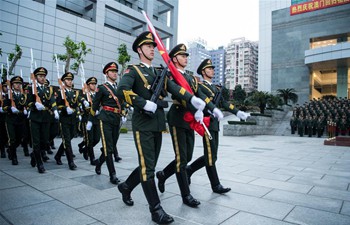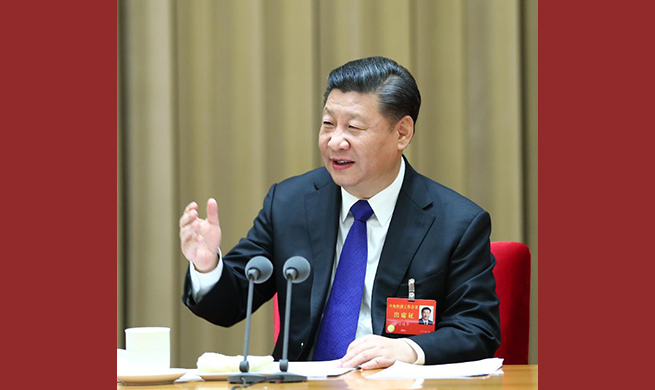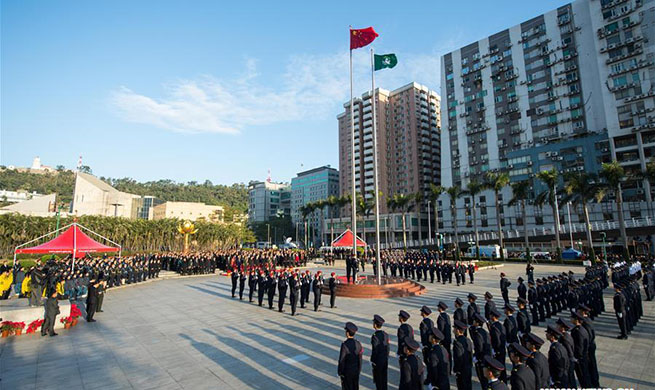MANILA, Dec. 20 (Xinhua) -- The Philippine Telegraph and Telephone Corporation (PT&T) plans to expand broadband Internet and emergency WiFi service in the Philippines with a Chinese partner's assistance, PT&T chairman Salvador Zamora has told Xinhua in an interview.
PT&T announced Tuesday that it signed a memorandum of agreement (MoA) in Beijing with a Chinese telecommunication company Chengdu Zhongxing Tiantong Technology Corporation.
Established in 1962, PT&T once was a major telecommunication provider in the Philippines. Now with the new Chinese business partner, PT&T is looking forward to taking part in the competition in the Philippine telecommunication business.
"Our first step is to expand our true broadband service in the Philippines. When I said true broadband service, I mean the true average speed, not the up to' speed," Zamora said.
The Philippines lags its neighbors in Southeast Asia on the speed of Internet service.
According to speed tests conducted by a website called Speedtest Global Index in September, the Philippines ranked 94th out of 121 countries for mobile Internet, while it was 91st out of 131 countries for fixed broadband. In both categories, the study said the Philippines was outranked by its five Southeast Asian neighbors Cambodia, Vietnam, Thailand, Malaysia and Singapore.
Besides the speed, Zamora said the penetration of Internet connection in the Philippines is only 15 percent, meaning that 85 percent of the areas remain unserved, especially in the central Philippine Visayas region and in the southern Philippine island of Mindanao.
"In our case, we are looking forward to providing the internet service, especially the unserved portion of the market," Zamora said.
He said PT&T and its Chinese partner Zhongxing Tiantong "are going to roll out fully nationwide broadband Internet service which can link all the islands of the country, from Luzon, Visayas and Mindanao in three years."
"We want to attract new consumers in the areas that have no access to the broadband internet," Zamora said.
Moreover, Zamora said they also plan to provide "emergency WiFi or telecommunication service" in the country. Already, he said they plan to launch the system firstly in Laguna, a province south of Manila.
In the MoA which was signed on this Monday, PT&T and Zhongxing Tiantong are to explore the feasibility of engaging in a project that will provide free wireless broadband services in designated public areas before, during, and after the occurrence of disasters in the Philippines.
Zamora said PT&T has the mandate from the government to provide emergency telecommunication service.
"We hope the emergency service can be used when the disasters happen," he said, adding that its Chinese partner can provide the necessary help in setting up the emergency telecommunication service.
In November, presidential spokesperson Harry Roque said the president has offered to China "the privilege to operate the third telecommunications carrier" in the Philippines.
Philippine President Rodrigo Duterte said Tuesday that he wanted the third telecommunications player from China to start providing services to consumers by the first quarter of 2018.
With the entry of a Chinese telecommunication company, the Duterte administration hopes to break the duopoly of two major telecommunication providers, Globe Telecom Inc. and PLDT.
"Look forward to better telecommunications in terms of internet speed and access," Roque said.
PT&T chairman Zamora said China makes a good partner, saying that China is developing fast in the telecommunication technology.
Zamora also confirmed reports that PT&T is now in talks with eight Chinese telecommunication companies "in different degrees."
"Some are in preliminary (stage), some are in the grant stage, some are suppliers," he said.
Zamora said PT&T welcomes Chinese companies as partners. He expressed hope that PT&T will break the duopoly.
"That's what we hope to do. We hope to provide better service that has not been serviced and let the Filipinos choose instead of joining the monopoly game," he said.

















